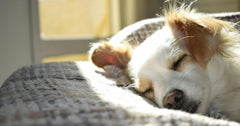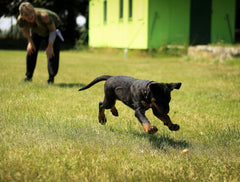
As adorable as your chubby little cat may seem, a cat's health can suffer if they hold on to extra weight for too long. This is why you must know how to help your feline friend lose weight and maintain a healthy weight. After you’ve seen your vet to express your concerns about your cat's weight, the vet may make one of several treatment plan choices.
A Diet to Maintain Weight or Lose Weight

A normal cat weight is approximately 10 pounds, so if your pet's weight is a lot higher than this, you should see your vet for a checkup. After your vet determines which directions your cat’s weight needs to go in, they will choose the right diet plan to suit these needs. The first and most simple solution might just be to change the portion sizes that you are feeding your cat. Smaller portions at mealtimes might just do the trick to help your cat begin to lose weight. Another step towards weight loss could also be to remove their auto-feeder or a timed pet feeder if you’ve been using one. The continuous supply of food may be doing more harm than good over time.
You can also ask your vet for a cat feeding guide by weight. Maintenance diets are great once your cat has reached their ideal cat weight, but until then, a diet geared towards weight loss is your best bet. A weight-loss diet will include everything that your cat needs to ensure a healthy, well-balanced diet. Be sure to also look into the best cat food for weight loss.
What Kinds of Food Should My Cat Eat to Lose Weight?

There are certain micro and macronutrients that vets feel are most important to include in a diet that is aimed at helping your cat lose weight. Those nutrients include protein, fiber, and moderate to low carbs and fat content. These guidelines are very similar to the kind of diet we might go by when trying to lose weight also.
Protein will provide your loving cat with the energy he or she needs to run around the house and get into mischief all day long. Protein will also help to keep them full longer between meals, which is especially important if you are also cutting back on their portion sizes.
Having high fiber and high moisture in their diets also helps to keep them full for longer periods between meals. High fiber and high moisture content typically go hand in hand in a wet food diet.
Cats need a certain amount of carbohydrate and fat intake at each meal, but you will probably notice that their weight loss diet includes lower amounts of these two nutrients, but not a total lack of them. Cats are very sedentary creatures, meaning they don’t easily burn off any excess fat as they grow older and lay around and nap more often. This is why cutting back on carbs and fat will help them to lose excess weight more easily. You can also consult your vet for vet-recommended cat food that may aid in weight loss.
Setting a Goal for Weight Loss

It is important to understand how much weight your cat needs to lose. You don’t want them to be underweight just as much as you don’t want them to be overweight. If they don’t weigh enough, health issues could arise, as well. You can talk to the veterinarian to see how much weight your cat should lose.
Be Purposeful

When helping your cat to lose weight, it is important to be purposeful. You can’t make your cat lose all the weight overnight. It takes time to get them at a manageable weight. Helping your cat to lose weight slowly and over time will get them healthier than trying to get them to lose weight quickly. Your cat should only lose 3 or 4% of their total weight every month.
Exercising

Cats can and should exercise, especially when you are trying to help them lose weight or manage their weight. While most cats do seem to rest and sleep a lot, you should get them some toys. Playing with them throughout the day can help them to lose weight. If you can find the times that your cat really wants to play, they can actually be quite active. Tip for cat owners: Most cats like to play around 15 minutes before it is time to eat. You should also consider walking your cat if you want to help them lose some weight.
Changing Their Diet

It might be necessary for you to change your cat’s diet. If they are eating food that has too much fat in it this could be the problem. There are healthier versions of cat food that you can get. You can even ask the veterinarian which food you should be feeding your cat to help them lose weight. In many cases, a low-carb, wet food diet that is filled with proteins is best.
Talking to the Veterinarian

You may think that you can handle your cat’s weight loss on your own. However, in some situations, you may want or even need to talk to the veterinarian. They can tell you exactly how overweight your cat is and how much weight they should lose to be considered healthy. In addition, they can tell you what type of food you should get for your cat and how often you should be feeding them, as well. The information provided to you here today can help you to manage your cat’s weight. If they are overweight, it is likely they are going to experience health issues. Helping your cat to lose weight will boost their health and their overall personality, as well.
Conclusion
Having extra weight may make your cat look that much more adorable, but unfortunately, the weight needs to go for the sake of your cat's health. Maintaining a healthy weight is key to your cat's longevity. They may not be happy with the changes in their diet at first, but they will come around and be thankful for what you are doing for them because they will continue to live a long and healthy life by your side for years to come.
Is your cat a bit overweight? Refer to your cat weight chart. If so, it is important to know that even a few extra pounds could make a grave difference to their health. It could shorten their lifespan, cause increased health issues, prevent them from being mobile, and much more. If the veterinarian has said your cat is overweight or you think they need to lose a few pounds, there are some things you should know.




